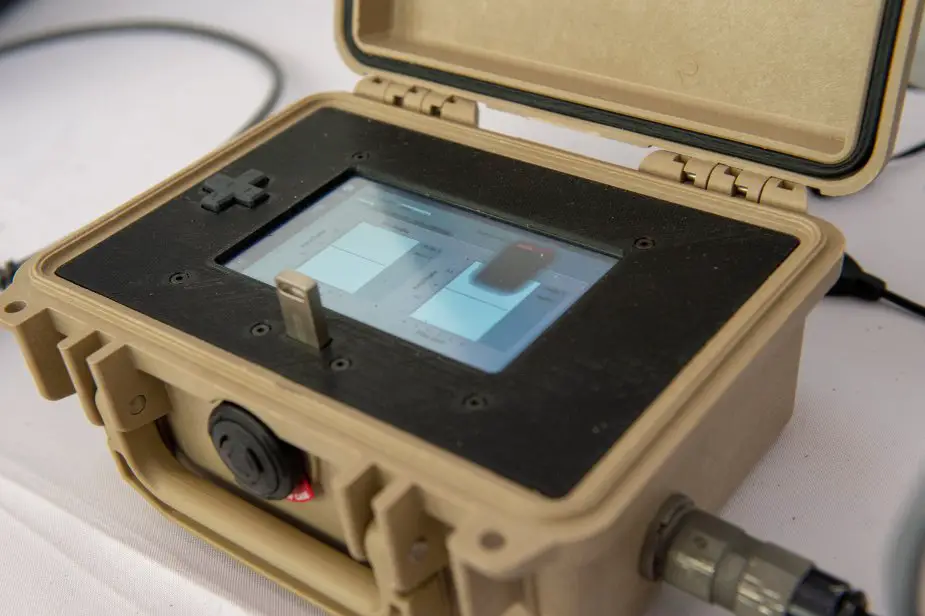U.S. new voice bridging system to streamline communications with allies
The U.S. Army is developing a new device to simplify secure radio communications with allied partners, Devon L. Suits, Army News Service, reports on U.S. Army’s website. Known as the Radio Interoperability Capability-Universal, or RIC-U, the new device serves as an analog-to-digital voice bridge between allies and U.S. troops.

The Radio Interoperability Capability-Universal, or RIC-U, serves as an analog-to-digital voice bridging device between allies and U.S. troops. By incorporating the RIC-U into voice networks, allied partners can use their native radio communications equipment, unique encryption, and frequency-hopping techniques to speak with U.S. military personnel. (Picture source: Devon L. Suits)
All Soldiers need to do is incorporate the RIC-U into their voice communications network, said Robert DiCarlo, an engineer with the Combat Capabilities Development Command C5ISR Center at Aberdeen Proving Ground, Maryland. Once the RIC-U is connected, Soldiers will then select the radio they are using and the radio they are trying to communicate with through the device's computerized user interface. After the device is set up, Soldiers can start transmitting and receiving voice communications. "It will take the burden of having to pull Soldiers off the battlefield and stick them on the radio [as liaison officers]," DiCarlo said.
By incorporating the RIC-U into voice networks, allied partners can use their native radio communications equipment, unique encryption, and frequency-hopping techniques to speak with U.S. military personnel. Further, the RIC-U makes the network more secure, as the Army and its allies can now talk encrypted on both sides of the voice communication network, said Rex Johnson, a system engineer with the Space and Terrestrial Communications Directorate.
The Army incorporated feedback from the recent Radio Interoperability Capability-Korea, or RIC-K, program while developing the RIC-U, DiCarlo added. In 2017, the Army sought to build a universal radio device that could connect U.S. and Korean radios, meeting a National Security Agency requirement, DiCarlo said. This led to the creation of the RIC-K, which enables direct radio communications and secure voice traffic between 8th Army and South Korean forces without an intermediary.
Regionalized commands around the globe have expressed an interest in the RIC-U device, DiCarlo added. The Army plans to submit a request for proposal to vendors in August, and narrow them down by September. "We are trying to get to the point where the RIC-U is in production by the end of the year," Johnson said.


























